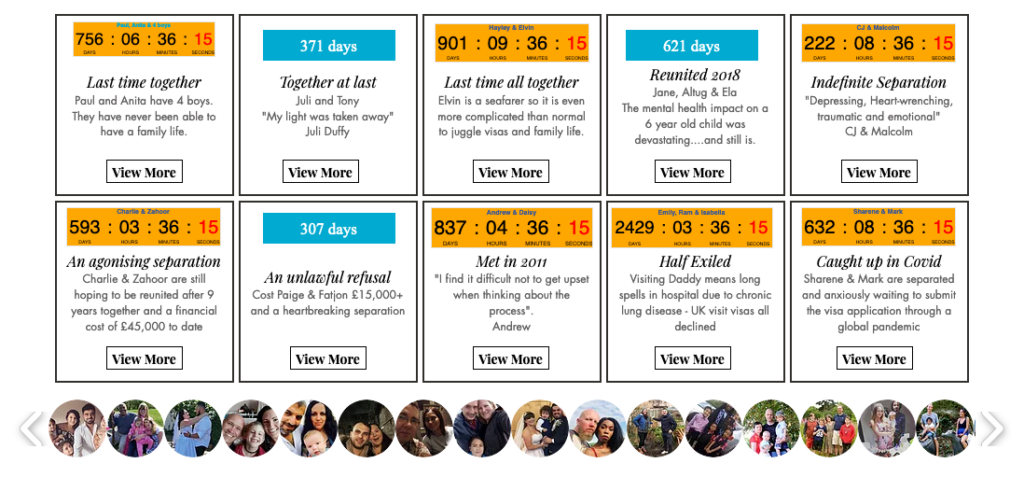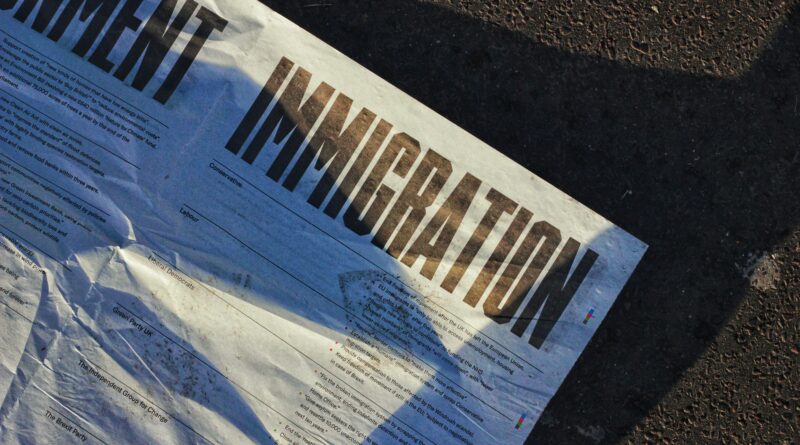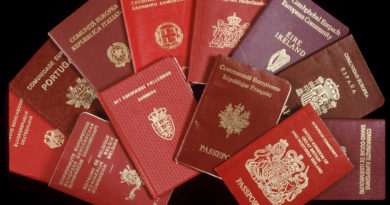UK immigration: fight for family rights of Brits in EU, residence document for EU citizens in UK is lost
The debate on the immigration bill, the UK’s central Brexit policy, will continue in parliament this week after the House of Lords voted a series of changes to the text. Peers are asking the government to rethink parts of the bill that penalise Britons living in the EU, and to provide more security to EU citizens in the UK.
The Immigration and Social Security Co-ordination (EU Withdrawal) bill is the piece of legislation that ends free movement of people between the UK and the EU and paves the way for a points-based system to determine who will be allowed to live, work and study in the country from January 1st 2021.
Loss of family rights for Brits in the EU
Britons living in the EU who will return to the UK with non-British partners and children will be impacted too. Under EU’s free movement, they would not face any barrier when returning with their families to their native country. Under the new regime, they will need a minimum annual income of GBP 18,600. Their non-British family members will also have to pay visa fees and a surcharge to access the healthcare system.
These rules already apply to non-EU family members of British citizens living in the UK. The government just plans to extend them to Brits returning from the EU after a ‘grace period’ ending in March 2022.
British in Europe, a coalition representing Brits living in EU countries, complained at the retroactive policy change. The group also warned that the salary threshold will be beyond the reach of many, especially if returns are motivated by the need to take care of elderly parents.
“You will need to earn at least GBP 18,600 from the part-time work you do when you are not caring for mum or dad. Your partner’s earnings will only count if s/he has been earning them in the UK for 6 months. But how did s/he get into the UK in the first place?” the group said.
Another organisation, Reunite Families UK, has denounced the devastating impacts of such measures showing on their website the length of forced separations suffered by couples struggling to meet the requirements.

Over 50 veterans from across the armed forces who live abroad have also called for changes to such rules.
During the debate in the House of Lords, Baroness Hamwee (Liberal Democrats) cited the dilemmas faced by some British families in the EU.
“There is a lady of 79 in the UK who expected to receive support and part-time care from her daughter, who would be prepared to give it provided that her French husband is able to move to Britain… There is a family in Italy, one parent British and one Italian, with two teenagers of dual nationality – one of whom has just started at university in the UK, while the other may want to make her life here; the parents may want one day to follow their daughters…” she said.
Lord Kerr of Kinlochard noted that EU citizens protected by the withdrawal agreement will maintain “quite rightly” the right to bring family members to the UK. “The oddity of this debate is that we are seeking to avoid discrimination against UK citizens,” he said.
Explaining the government’s position, Home Office Minister Baroness Williams of Trafford (Conservative) claimed that allowing Britons to return freely from the EU with non-British family members would constitute “preferential treatment” and be “unfair”.
“The rights for those affected by the end of free movement should, after a reasonable period to plan accordingly, which our policy provides, be aligned with those of other UK nationals who have always resided in the UK or who seek to bring family members to the UK after a period of residence in a non-EEA country,” she argued.
“To do otherwise would perpetuate a manifestly unfair situation for all other UK nationals wishing to live in the UK with family members from other countries,” she added.
The majority of peers, however, took a different view and passed with 312 votes to 223 an amendment to ensure that UK citizens protected by the EU withdrawal agreement, and the agreements with EFTA countries (Norway, Iceland, Liechtenstein and Switzerland), maintain the unconditional right to return to the UK with non-British family members.
A residence document for EU citizens
The House of Lords has also passed with 298 votes to 192 an amendment to the bill that would allow EU, EEA and Swiss citizens to receive a physical document proving their legal status in the UK, if they wish so.
Under the post-Brexit residency scheme, their settled or pre-settled status can only be viewed online, including by prospective employers, landlords and other service providers who need to check their credentials.
“Landlords, employers and others required to check immigration status will now be confronted by two systems, one for EEA nationals and one for non-EEA nationals,” said Lord Oates (Liberal Democrats) presenting the amendment.
“Given that they face crippling fines and the possibility of imprisonment if they get things wrong, they may decide that in the absence of physical proof, it is safer to replicate the government’s discrimination and not to employ, rent a property or provide a service to an EEA national,” he added. Lord Oates also warned about possible technical failures of the online system.
Baroness Williams of Trafford responded that if 89% of EU citizens settled in the UK would apply for a physical document, as suggested by a survey of citizens’ rights group the3million, the cost “would be over £100 million” and “if only 2% of people, the over-65s, were to ask for a physical document, the cost would be… about £5 million”.
On top of that, the Minister added, there would be “ongoing maintenance costs” to replace lost and stolen cards, reissue cards following changes to personal details, and deliver new cards to those transitioning from pre-settled to settled status.
“This will divert investment away from developing the digital services and support for migrants using those services that we need for the future,” Baroness Williams of Trafford said.
While it is unlikely the government will accept to change the bill, British in Europe and the3million are now urging MPs to back the amendments.
Further protections for children
The upper house of the UK parliament passed a series of other amendments to the bill to automatically grant settled status to EEA and Swiss children in care, to continue the rights to family reunion and ensure that unaccompanied child refugees in Europe have a legal route to sanctuary in the UK, and to limit immigration detention to 28 days (at present it is unlimited).
The debate will continue in the House of Lords on October 12, when the government will either accept the amended bill or propose new changes. The bill will then go back to the House of Commons for further debate on October 19.
Update on October 22: the House of Commons rejected all amendments. Subsequently, the House of Lords also rejected the amendment on the right to family reunion for British citizens returning from the EU and a modified amendment on the provision of a physical residence document to EU citizens in the UK. The upper house however accepted the amendment on the family reunion of refugee children.
Claudia Delpero © all rights reserved.
Photo by Metin Ozer on Unsplash.
Europe Street News is an online magazine covering citizens’ rights in Europe. We are fully independent and we are committed to providing factual, accurate and reliable information. We believe citizens’ rights are at the core of democracy and information about these topics should be accessible to all. This is why our website and newsletter are available for free. Please consider making a contribution so we can continue and expand our coverage.





